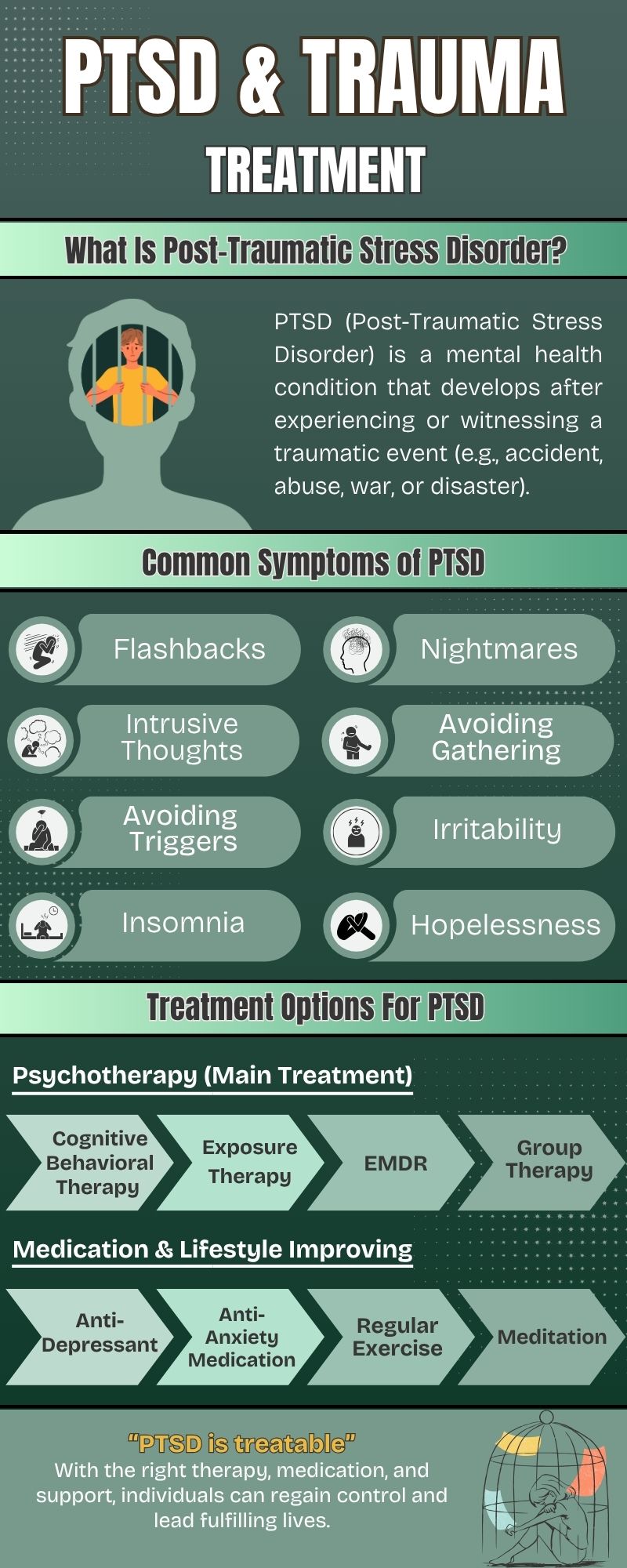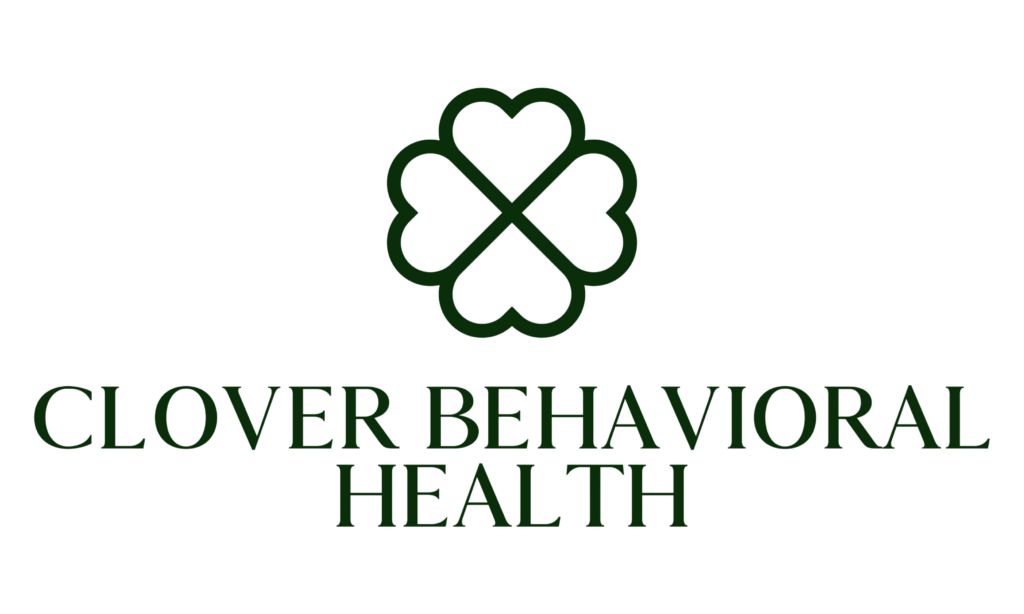How PTSD Treatment in Chelmsford, MA, Helps With Nightmares, Flashbacks, and Hypervigilance
What’s so special about the old Drum Hill Rotary? If you lived in Chelmsford before 2003, you already know. That traffic circle was a nightmare. Rear-end collisions. Daily. Drivers screaming. Your heart was pounding before you even got close.
That feeling? That’s hypervigilance. Body on alert. Scanning for danger. Braced for impact.
Now imagine living like that every single day. Not just in traffic. Everywhere. All the time.
That’s PTSD. It doesn’t need a rotary to trigger it. A sound. A smell. The way someone stands too close. Your nervous system is stuck in that moment when everything went wrong. Ready to crash. Even when the road ahead is clear.
The Drum Hill Rotary got demolished and replaced with something safer. You don’t have to live in the wreckage either.
When Your Brain Won’t Let You Forget
PTSD shows up differently for everyone. However, three symptoms dominate. Nightmares. Flashbacks. Hypervigilance. They’re why you can’t just “get over it.” Here’s what’s actually happening.
Nightmares: Sleep Becomes a War Zone
You dread going to bed. Not because you’re not tired. God, you’re exhausted. But sleep means nightmares. Reliving it all over again in vivid, terrifying detail.
Most people suffering through these nightmares? They never even mention them to their doctor. They think it’s just how life is now.
Nightmares aren’t just bad dreams. They’re your brain trying to process something it couldn’t handle when it happened. The event got filed wrong. Stored in the wrong place. Now it replays on a loop every time you close your eyes.
Your brain is trying to make sense of it. It just doesn’t know how.
Flashbacks: When the Past Crashes Into Now
One second you’re at the grocery store. The next? You’re right back there. The smell. The sounds. The tightness in your chest. Not like a memory. Like it’s happening right now.
That’s a flashback. Your brain genuinely can’t tell the difference between then and now. The memory isn’t stored properly. It’s trapped in your present tense.
You might freeze. Panic. Feel like you’re watching yourself from outside your body. People around you have no clue. But for you? Time collapsed. And you’re left shaking, trying to remember where you actually are.
Hypervigilance: Stuck in Survival Mode
Your shoulders never relax. You scan every room. Check exits. Notice who’s behind you. Jump at sudden noises. Startle when someone touches you.
This isn’t paranoia. It’s hypervigilance. Your nervous system is stuck in survival mode. Your amygdala is working overtime. That’s the part of your brain that detects threats. It’s convinced danger is always one second away.
You’re not overreacting. Your brain is doing what it was designed to do after trauma. Trying to keep you safe. It just doesn’t realize the danger has passed.
Why These Symptoms Won’t Just Go Away
Let’s talk about what’s really happening inside your head.
When trauma happens, your brain is supposed to process it. File it away as a memory. Something that happened. Past tense. Done.
Yet, sometimes the trauma is too intense. Too sudden. Too much. Your brain can’t complete that processing. So the memory gets stuck. Not in long-term storage where it belongs. It stays active. Present. Alive.
That’s why flashbacks feel so real. Why nightmares are so vivid. Why your body reacts like the danger is happening right now.
Your amygdala gets stuck on high alert. Fire alarm is blaring 24/7. Meanwhile, your prefrontal cortex, the part that’s supposed to calm things down, gets overwhelmed. It can’t tell your amygdala. “Hey, that was then. This is now. We’re safe.”
You’re left with a brain that can’t tell time. Can’t distinguish between past danger and present safety.

How PTSD Treatment Works
Treatment isn’t about forgetting. You can’t erase the past. What can you do? Change how your brain stores it. Process it. Finally file it away as something that happened, not something that’s still happening.
Reprocessing the Memory
EMDR uses bilateral stimulation. You follow your therapist’s finger back and forth with your eyes while thinking about the trauma. Sounds weird, right? But that left-right-left-right movement helps your brain do what it couldn’t before. Process it. Store it away properly.
Prolonged Exposure helps you gradually face what you’ve been avoiding. Not to torture you. But because avoidance keeps the trauma alive. Keeps it powerful. Facing it, with support, helps your brain realize you can survive the memory.
Cognitive Processing Therapy tackles the beliefs formed around your trauma. “It was my fault.” “I should have done something.” “The world isn’t safe.” Your therapist helps you challenge these stuck points. Develop more balanced ways of thinking.
The memory doesn’t disappear. But it loses its power to hijack your present.
Stopping the Nightmares
Imagery Rehearsal Therapy teaches your brain new pathways. You reshape the nightmare while you’re awake. Change the ending. Take back control.
You write down the nightmare. Then rewrite it. Give yourself an escape route. Change who shows up. Shift the outcome. Then rehearse this new version. Over and over.
Your brain starts to learn it has options. That you’re not helpless in your own dreams. The nightmares lose intensity. Happen less often. You start sleeping again. Really sleeping.
Calming Your Nervous System
Grounding techniques pull you back to the present. Five things you can see. Four you can touch. Three you can hear. Simple. But it interrupts the panic. Reminds your brain where you actually are.
Somatic work addresses the physical tension. That tightness in your chest. Those clenched shoulders. Trauma lives in your body, not just your mind. You learn to notice these sensations without panicking. To breathe into them. To release them.
Your nervous system learns to recalibrate. To tell the difference between actual danger and false alarms.
Final Words
You’ve been carrying this long enough. PTSD treatment in Chelmsford, MA, can help you put it down. Not by pretending it didn’t happen. But by processing it so thoroughly that it finally stops running your life.
The nightmares can fade. The flashbacks can stop. The constant vigilance can ease. You are able to sleep at night. Enter a room without looking at the exits. Living in the present as opposed to living in the past.
Clover Behavioral Health Center is there when you are.
Call us today. Your nervous system needs some rest. And you should be able to feel safe in your own life.














